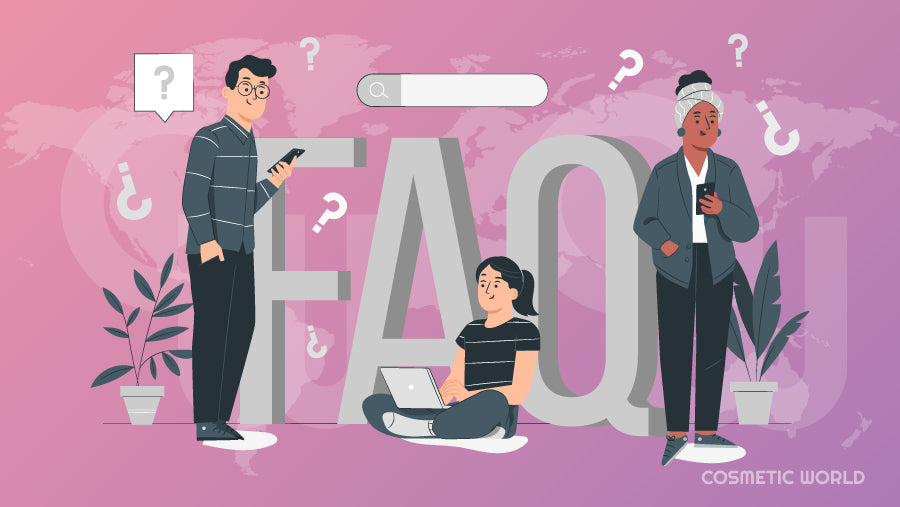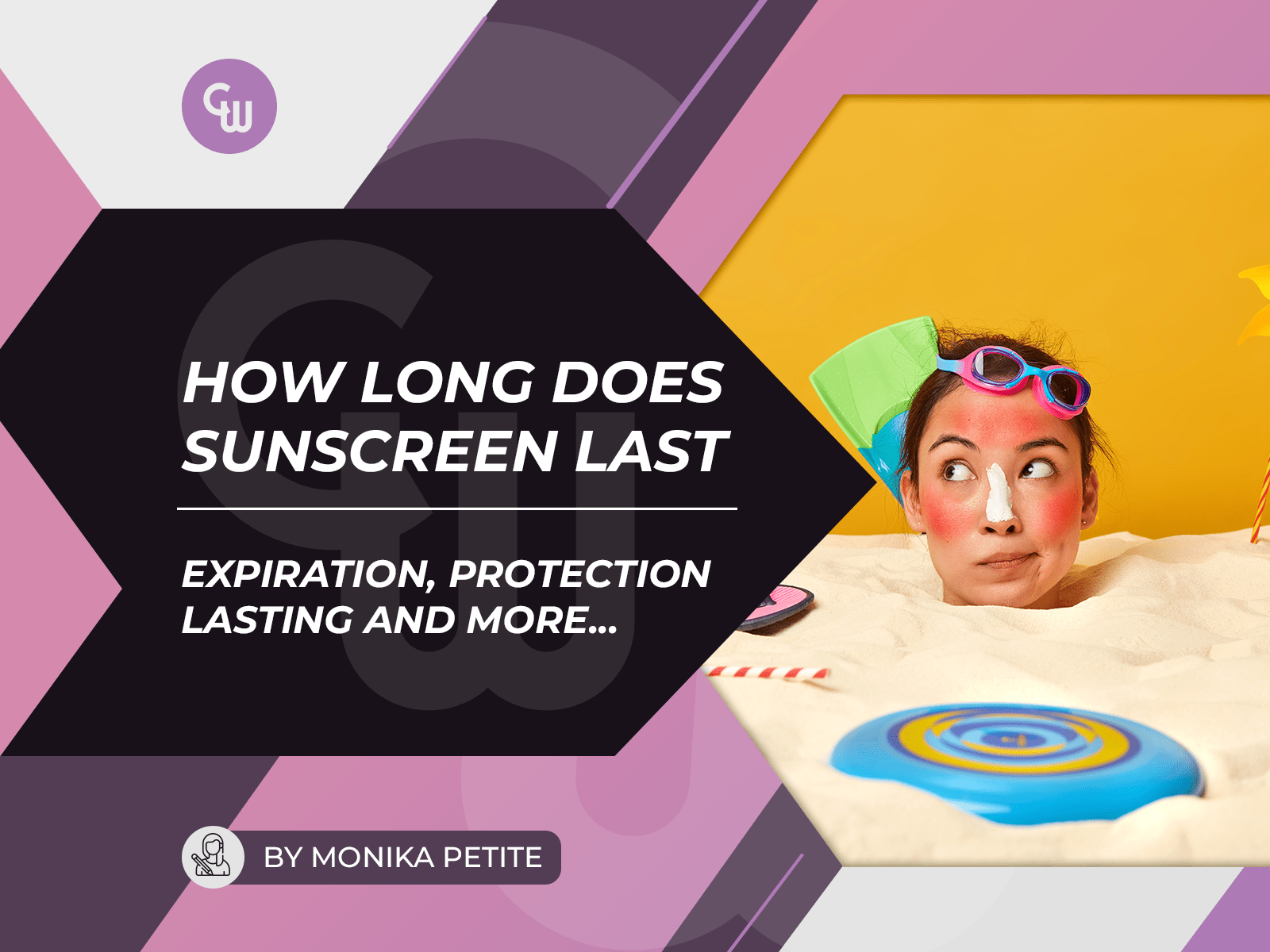Let's dive headfirst into a topic hotter than a mid-July afternoon – sunscreen. Like the last slice of watermelon at a summer picnic, sunscreen is something we all want, need, and shouldn’t ignore. But have you ever asked yourself how long does it last, or what happens if you use that bottle from last summer hiding in the back of your beach bag? Well, you're in for a treat, my friends, as we're going to peel back the layers on its shelf life, skin protection, optimal usage, and oh-so-much more!
Table of Contents
- How long does sunscreen last? — Expiration and skin protection
- Is Sunscreen From Last Year Still Good?
- Does Sunscreen Expire?
- How Long Does Sunscreen Last Once Opened?
- How Long Does Unopened Sunscreen Last?
- Can I Still Use Expired Sunscreen?
- How Can I Tell If My Sunscreen Has Expired?
- Tips For Storing Sunscreen To Keep It Effective
- How Does Sunscreen Work?
- Chemical Vs. Physical Sunscreen
- How to Apply Sunscreen?
- Other Means of Sun Protection
- Key Takeaways
- FAQ
So, buckle up and don’t forget your sunnies because we’re about to shed some light on sunscreen’s lifespan, how it works, the difference between physical and chemical sunscreens, and even alternative methods of sun protection. We'll conclude our radiant journey with some key takeaways and a FAQ section quicker than you can say 'SPF'. So, if you want to get serious about protecting your skin while still enjoying the sunshine, stick around – knowledge is about to dawn!
How long does sunscreen last? — Expiration and skin protection

Firstly, let's divide this question into two directions – What is the expiration period, and how long does sunscreen last on the skin?
The shelf life is usually up to three years. To know if your sunscreen expires, check the expiration date on your product. Every manufacturer places a label with the expiration date on the bottle. If the current date is before the printed date, it is still in its prime!
But how about on your skin, you ask? Well, typically, sunscreen protects your skin at least 80 minutes, but this can vary depending on factors such as the specific product formula, the amount applied, sweating, swimming, and sun exposure. Most sunscreens are designed to remain effective for about two hours.
Is Sunscreen From Last Year Still Good?

So you've found a bottle of sunscreen from last summer, and you're wondering if it's still good? You're not alone! As long as your sunscreen hasn't passed its expiration date and has been stored properly (more on that in the text below), it should be effective. However, if you're in any doubt, you're better off purchasing new one , especially if it smells funky or has changed in texture. Remember, sunburn today can lead to premature wrinkling and skin cancer tomorrow.
Does Sunscreen Expire?

Absolutely, sunscreen does expire. Over time, the active ingredients in both chemical and physical (like zinc oxide and titanium dioxide) break down, reducing their effectiveness. Using expired product can lead to sunburn, skin irritation, and, worst of all, increased exposure to harmful UV rays. Always check the expiration date before you slather it on.
Oh… A question for you. Do you want to look like that:
If not, just buy a new one! 😉
How Long Does Sunscreen Last Once Opened?
There's no evidence to suggest that simply opening the product will cause it to expire faster. Once a bottle is opened, it generally remains effective until the expiration date, whenever the purchase date is, assuming you've kept it stored in a cool, dark place. However, exposure to certain conditions can degrade the product and make it less effective. High temperatures and direct sunlight can accelerate the degradation of the active ingredients, leading to decreased efficacy. After a long day in the sun, resist the urge to leave it in your beach bag or car.
How Long Does Unopened Sunscreen Last?
Unopened sunscreen typically has a shelf life of up to three years from its production date. Keep it stored away from extreme temperatures, and check the expiration date before using it. And remember, once you've cracked that seal, the countdown begins!
Can I Still Use Expired Sunscreen?

Though it might be tempting to use expired sunscreen in a pinch, it's not recommended. Expired one may not provide the sun protection stated on the bottle, putting your skin at risk of sunburn and sun damage. When in doubt, throw it out!
How Can I Tell If My Sunscreen Has Expired?
Keep an eye out for obvious changes in smell, texture, or color. If it has separated, become watery or lumpy, or has an odd smell, your sunscreen has expired. Always check the expiration date before applying.
Tips For Storing Sunscreen To Keep It Effective
To prolong the shelf life of your sunscreen:
-
Store it in a cool (59-86 degrees Fahrenheit / 15-30 °C) and dark place. 🌑❄️
-
Avoid exposing the product to excessive heat or direct sun. 🔆🔥🚫
-
Don't leave your sunscreen in your beach bag or car. 🏖️👜🚗
-
Keep the lid firmly closed when not in use. 🔒💼
Author's note: My personal place is the medicine cabinet. But I also know a few people that store it in the fridge. Which is actually not a bad idea!
How Does Sunscreen Work?

Sunscreen works by protecting your skin from harmful UV radiation, which includes both UVA and UVB rays, which can cause various types of damage to your skin.
UVA rays: ☢️ These are the most prevalent type of UV radiation and can penetrate deep into your skin. UVA rays are known to cause premature skin aging, including wrinkles and age spots, and can harm the skin's DNA. Over time, this DNA damage can lead to skin cancer. They can also contribute to the development of certain types of eye disorders, such as cataracts.
UVB rays: ☢️ UVB rays have a shorter wavelength and primarily affect the surface layers of the skin. They are the main cause of sunburn and can damage the skin's cells directly, which can lead to skin cancer over time. In fact, the severity of these effects can vary depending on the time of day and year, as well as your location.
Chemical Vs. Physical Sunscreen
Physical Sunscreens 🏋️♀️
Physical, also known as mineral sunscreens, use active ingredients like zinc oxide and titanium dioxide to deflect UV rays. They're a great choice for sensitive skin and offer immediate protection upon application.
Chemical Sunscreens 🧪
Chemical sunscreens use organic compounds to absorb UV radiation, convert it into heat, and dissipate it from the skin. They're usually lighter and easier to apply without leaving a white cast.
How to Apply Sunscreen?

Applying sunscreen isn't as simple as slapping it on your skin and heading out the door. Oh no, it's a veritable art! Begin by choosing a broad-spectrum sunscreen with an SPF of at least 30. Now, here's the magic – apply your sunscreen before you get dressed. This ensures no sneaky sunburns on those edges of your skin that your clothes don't quite cover. Apply it generously and evenly over all exposed skin, remembering those often-forgotten areas like your ears, the back of your neck, and even the tops of your feet.
How much is enough, you ask? For an adult, aim for about a shot glass (or two tablespoons) for your entire body. Don’t forget to reapply at least every two hours and immediately after swimming or heavy sweating. Now, off you go, protected and ready to face the sun's rays!
Other Means of Sun Protection

Besides wearing sunscreen, you can also protect your skin by:
-
Wearing a wide-brimmed hat and UV-protective clothing.
-
Seeking shade during peak sunlight hours.
-
Wearing sunglasses to protect your eyes.
-
Avoid sunlight around noon
-
Drink more water
-
Wear protective clothes
Key Takeaways
-
Always check the expiration date on your bottle.
-
Wear sunscreen every time you go outside in harsh sun.
-
Discard sunscreen that has expired, changed color, smell, or consistency.
-
Store it properly to maintain its effectiveness.
-
Reapply sunscreen every two hours and after swimming or sweating.
FAQ:

Does SPF Expire If I Don’t Open It?
Short answer: Yes 👍
Even unopened, the product doesn't last forever. It typically remains effective for up to three years from the production date.
Is expired sunscreen better than no sunscreen?
Short answer: Yes 👍
If the choice is between using expired or no sunscreen at all, it is still better to use the expired one. While its effectiveness may be reduced, some level of protection may still be provided. Partial protection is better than no protection.
How long does SPF 50 last?
Short answer: 2 hours ⏰
Regardless of SPF level, most sunscreens need to be reapplied every two hours, and immediately after swimming or heavy sweating.
Does sunscreen block vitamin D?
Short answer: Yes 👍
While sunscreen does block UVB rays (which the body uses to produce vitamin D), studies suggest that regular use doesn't usually result in vitamin D deficiency.
Can you still get a tan with sunscreen on?
Short answer: Yes 👍
Even with sunscreen, your skin can tan or burn. That's why it's essential to reapply every two hours and take additional sun-protection measures.
Does mineral sunscreen last longer?
Short answer: No 👎
Both mineral and chemical sunscreens generally last for about two hours on the skin before needing reapplication.
What happens when you don’t apply sunscreen enough?
Short answer: Your skin gets harmful UV rays ☀️
Not applying enough sunscreen can lead to sunburn, premature aging, and an increased risk of skin cancer due to exposure to harmful UV rays.
How long do you need to be in the sun to get enough vitamin D?
Short answer: 10-30 minutes ⏰
This can vary based on factors like skin type, location, and time of year. Typically, 10–30 minutes of sun exposure on the face, hands, and forearms twice a week is considered adequate. Always consult with a healthcare provider for personalized advice.











